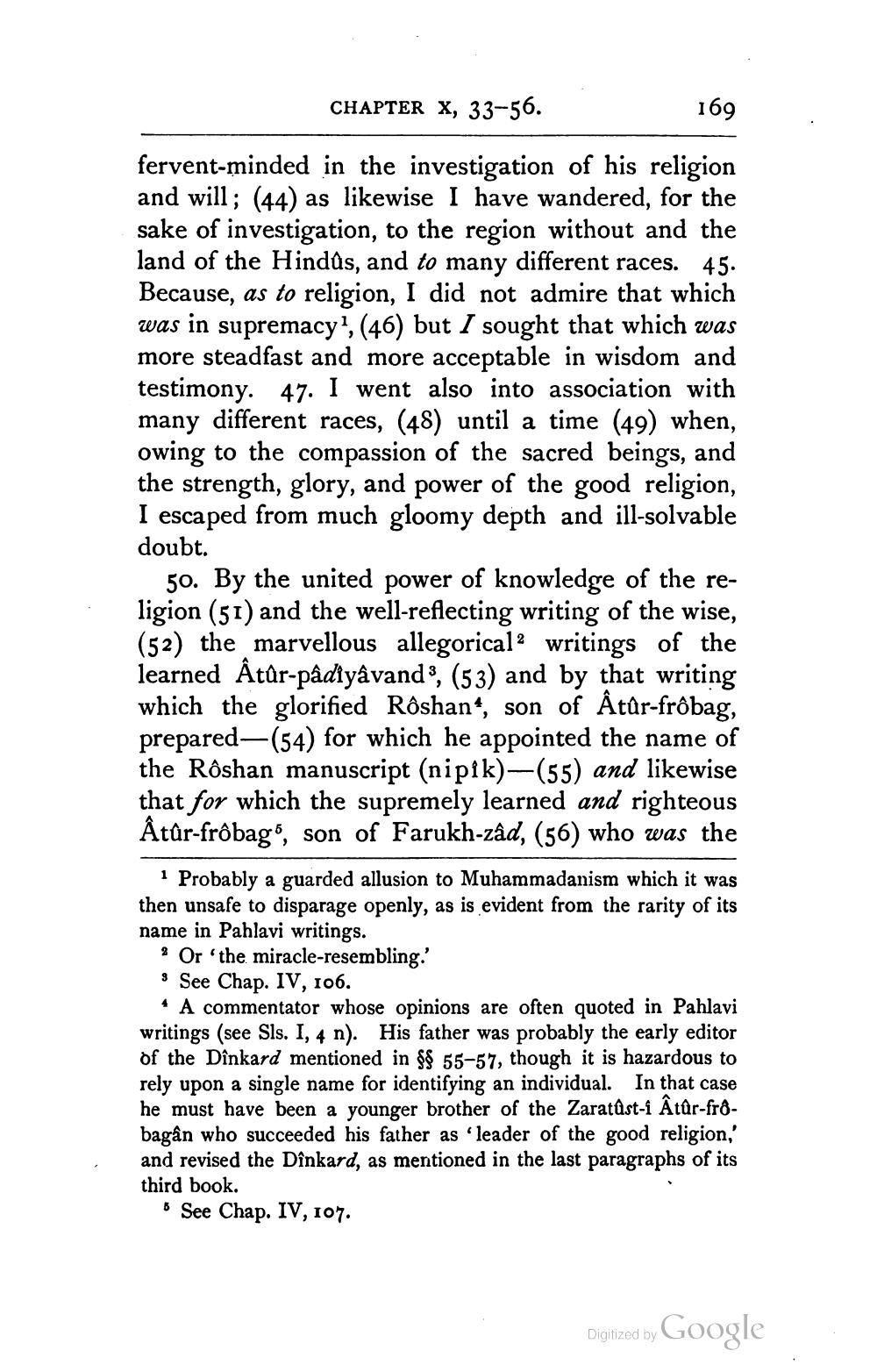________________
CHAPTER X, 33-56.
169
fervent-minded in the investigation of his religion and will; (44) as likewise I have wandered, for the sake of investigation, to the region without and the land of the Hindus, and to many different races. 45. Because, as to religion, I did not admire that which was in supremacy?, (46) but I sought that which was more steadfast and more acceptable in wisdom and testimony. 47. I went also into association with many different races, (48) until a time (49) when, owing to the compassion of the sacred beings, and the strength, glory, and power of the good religion, I escaped from much gloomy depth and ill-solvable doubt.
50. By the united power of knowledge of the religion (51) and the well-reflecting writing of the wise, (52) the marvellous allegorical writings of the learned Atûr-pâdiyâvand, (53) and by that writing which the glorified Rôshan“, son of Atûr-frôbag, prepared—(54) for which he appointed the name of the Rôshan manuscript (nipik)—(55) and likewise that for which the supremely learned and righteous Atûr-frôbags, son of Farukh-zâd, (56) who was the
1 Probably a guarded allusion to Muhammadanism which it was then unsafe to disparage openly, as is evident from the rarity of its name in Pahlavi writings.
2 Or the miracle-resembling.' 9 See Chap. IV, 106.
* A commentator whose opinions are often quoted in Pahlavi writings (see Sls. I, 4 n). His father was probably the early editor of the Dînkard mentioned in 88 55-57, though it is hazardous to rely upon a single name for identifying an individual. In that case he must have been a younger brother of the Zaratûst-i Atûr-frobagân who succeeded his father as 'leader of the good religion,' and revised the Dînkard, as mentioned in the last paragraphs of its third book.
6 See Chap. IV, 107.
Digitized by Google




